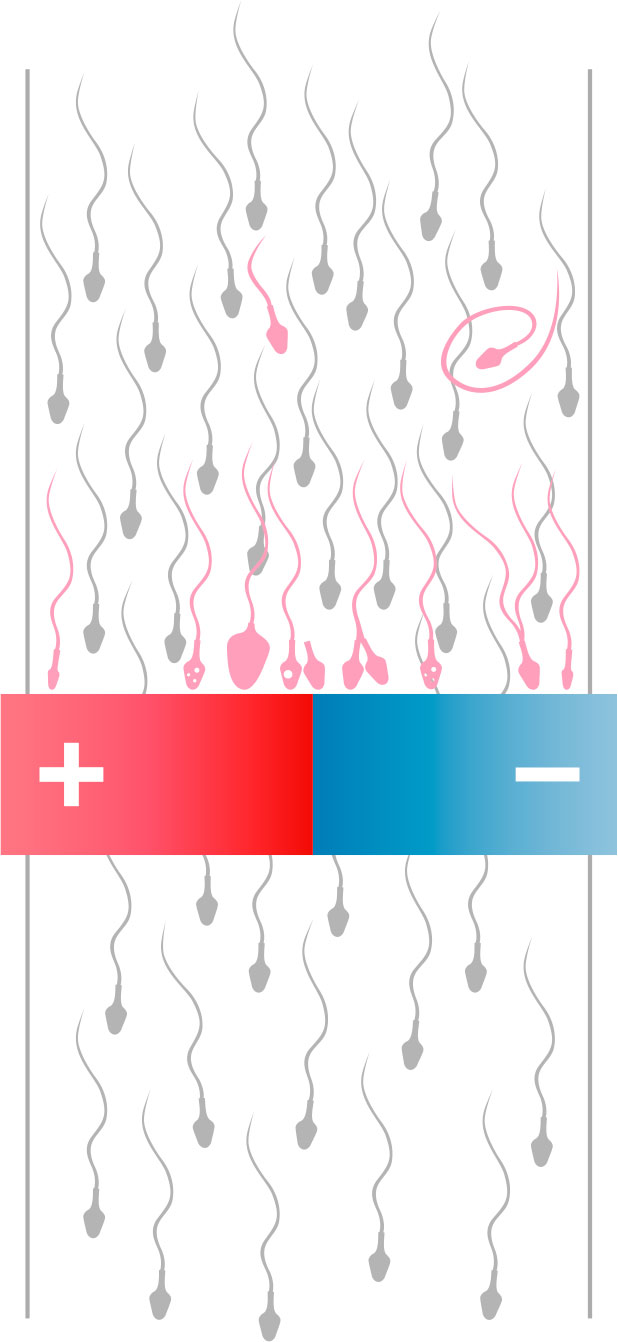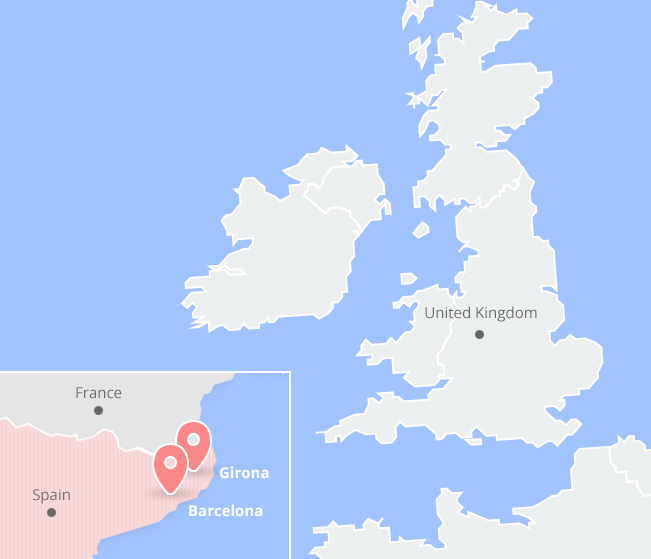Assisted reproduction: Complementary techniques
MACS (Magnetic Activated Cell Sorting)
MACS (Magnetic Activated Cell Sorting) or magnetic separation using Annexin V columns is a technique that allows spermatozoa with the best characteristics to be selected for use in assisted reproduction.
Healthy spermatozoa are separated from those with a high level of DNA fragmentation using magnetic attraction. By using MACS, apoptotic sperm (those degenerating spermatozoa that are defective or poor quality) can be discarded. The membranes of spermatozoa with a high level of DNA fragmentation contain phosphatidylserine, a protein which makes it possible to trap and filter them, and therefore recover only spermatozoa with an intact biological potential.
By doing this, MACS selects and concentrates the healthy spermatozoa, and these are the only ones that will be used during the selected assisted reproduction technique.
By utilizing the best spermatozoa, the fertilisation rate, the quality of the embryos and, ultimately, the pregnancy rate are all increased.

Compatible techniques
When is MACS technique recommended?
It can be beneficial for any patient to use MACS to improve their semen sample; however, it is especially indicated for:
- Patients who have a high level of DNA fragmentation in their spermatozoa.
- Patients who had recurrent miscarriages.
- Patients who have had poor quality embryos in previous cycles.




 Español
Español Français
Français Català
Català Italiano
Italiano Русский
Русский









